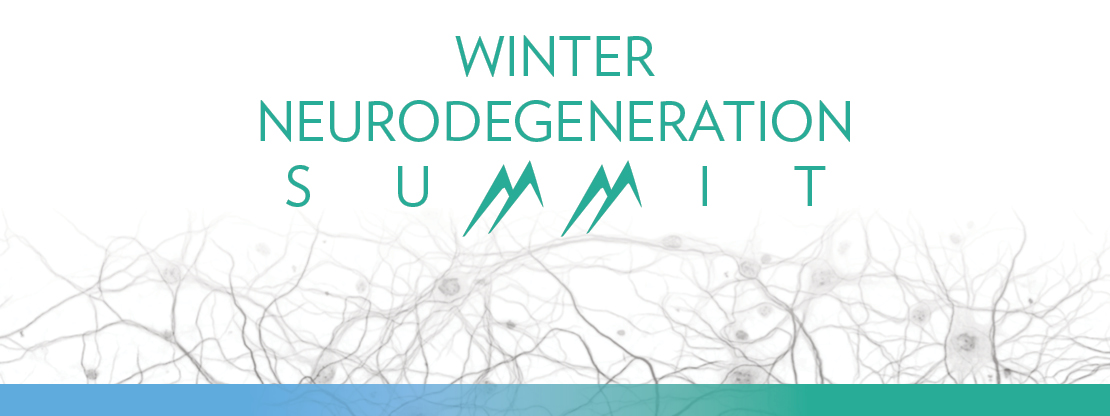Winter Neurodegeneration Summit

The Winter Neurodegeneration Summit will highlight research conducted by graduate students and postdoctoral fellows at Van Andel Institute and Michigan State University. It will feature trainee talks, a poster session and ample networking opportunities.
This event is open only to VAI and MSU faculty, trainees and staff. For more information on VAI’s other scientific events, please visit our Events page here or contact Courtney Zirkle to be added to our email list.
- 8:00 am Breakfast
- 9:00 am Welcome and opening remarks
- Betul KaraMichigan State University
- 9:15 am Trainee talks (four 15-minute talks)
- Masha Gifani, M.D.Michigan State UniversityEffects of locus coeruleus degeneration in a rat model of Alzheimer's disease
- Vanessa HowlandVan Andel InstituteExploring Tmem230-linked PD through a dual model approach
- Mike KubikMichigan State UniversityDisease-modifving potential of ROCK inhibitor, KL-00974, in svnucleinopathy models of Parkinson's disease
- Arianna Colini Baldeschi, Ph.D., and Estibaliz Santiago Mujika, Ph.D.Van Andel InstituteModeling AD and PD - in vitro to in vivo
- 10:15 am Break
- 10:30 am Trainee talks (four 15-minute talks)
- Saima Zameer, Ph.D.Van Andel InstituteRole of the vermiform appendix in Parkinson's disease
- Mohammed AlhadidyMichigan State UniversitySumoylation alters the formation of pathogenic conformations and aggregation of tau protein in vitro
- Alex Soto-Avellaneda, Ph.D.Van Andel InstituteAssessing the impact of Helicobacter pylori on a-synuclein pathogeneses
- Caryle SzarowiczMichigan State UniversityCharacterizing the impact of exogenous BDNF supplementation on cell replacement therapv in rs6265 BDNF Parkinsonian rats
- 11:30 am Lunch
- 1:00 pm Poster session
- 2:00 pm Trainee talks (two 30-minute talks)
- Dvlan Finneran, Ph.D.Michigan State UniversityReelin over expression in a mouse model of amvloid-induced tovopathy
- Dorian Sargent. Ph.D.Van Andel InstituteNeuronal VPS35 deletion induces neurodegenerative diseases in mice
- 3:00 pm Poster awards and closing remarks
- Alysa Kasen and Naman Vatsa, Ph.D.Van Andel Institute
- 3:30 pm Social hour
- 5:30 pm Event ends
What if I need additional accommodations?
Please contact Courtney Zirkle to discuss any special accommodation needs.
Code of Conduct Guidelines
We are dedicated to providing a harassment-free, non-discriminatory symposium experience for all participants, regardless of race, color, national origin, religion, sex, age, disability, pregnancy, height, weight, marital status, veteran status, sexual orientation, gender identity, or other personal characteristics covered by applicable law. We will not tolerate harassment of conference participants in any form. We expect participants at our events to engage in constructive and professional discussions at all times. Harassment can include unwelcomed attention, inappropriate comments or jokes that refer to gender differences, sexual topics, requests for dates, or other sexual activities as well as the use of language that may demean or degrade individuals. These behaviors are not appropriate for any of our conference venues, including talks, workshops, networking sessions, poster sessions, social networking platforms, and other online media platforms. Any participant violating these guidelines will be removed from the symposium at the discretion of the conference organizers.
Anyone who has experienced the above, or who has witnessed such behavior, should notify Courtney Zirkle at [email protected]. Anonymous reporting may also be done through the EthicsPoint Hotline.
Submitted abstracts should represent original research. The title should be brief and descriptive, and the body should include rationale, methods and results. Please prepare abstracts using the below template.
Abstract submission
Poster abstracts should be submitted during the registration process.
Questions?
Questions regarding abstract submission, posters, or the poster session can be directed to Courtney Zirkle.
Abstract Format
TITLE OF ABSTRACT IN ALL CAPS (STYLE = TITLE)
Presenting Author1,2, Other Author1, and Last Author1,3 (Style = Authors)
1First Dept., Institution, City, State, Country, 2Second Dept., Institution, City, State, Country, and 3Last Dept., Institution, City, State, Country (Style = Affiliations)
Body of abstract should be 300 words or less. Define each abbreviation at first use. Font should be Arial, 11 pt. and text should be single-spaced. Submitted files should be Word documents document (.doc or .docx) with the filename formatted as: lastname_abstract. (Style = Body)
Example
THE ROLE OF A-SYNUCLEIN IN PARKINSON’S DISEASE PATHOLOGY
Jane Smith1 and Joe Jones2
1Department of Neurodegenerative Science, Van Andel Institute, Grand Rapids, MI, United States, and 2 Michigan State University College of Human Medicine
The pathological hallmark of Parkinson’s disease (PD) is protein-rich, intraneuronal inclusions known as Lewy bodies and Lewy neurites, which are composed primarily of aggregates of misfolded a-synuclein (a-syn) protein. Recent studies suggest…
Graduate Student, Michigan State University College of Human Medicine
Betul Kara is a Ph.D. student in the Cell and Molecular Biology Program at Michigan State University. She received her bachelor’s degree from Istanbul University in Molecular Biology & Genetics and a master’s in Neurobiology from Georgia State University. She is currently pursuing her Ph.D. in the Counts’ lab at MSU, studying early tau pathology in the default mode network during the progression of Alzheimer’s disease.
Graduate Student, Van Andel Institute Graduate School
Postdoctoral Fellow, Sortwell Lab
Michigan State University College of Human Medicine
Postdoctoral Fellow, Henderson Lab, Van Andel Institute
Dr. Naman Vatsa graduated with a bachelor’s degree in pharmacy from Lucknow, India. He earned his master’s and Ph.D. in neuroscience at the National Brain Research Centre, India. During his Ph.D., he worked on several projects including basic and translational studies on Angelman syndrome, Huntington’s disease and Alzheimer’s disease. After graduate school, he was associated with BioXcel Corporation (India), where he worked in the drug discovery toward drug repurposing for neurological rare disorders using artificial intelligence. He is currently a postdoctoral fellow in the lab of Dr. Michael Henderson at Van Andel Institute, where he investigates the underlying pathogenesis of Parkinson’s disease and aims to leverage that knowledge for development of potential therapeutics.
Event Details
Contact Info:
Email: Courtney Zirkle